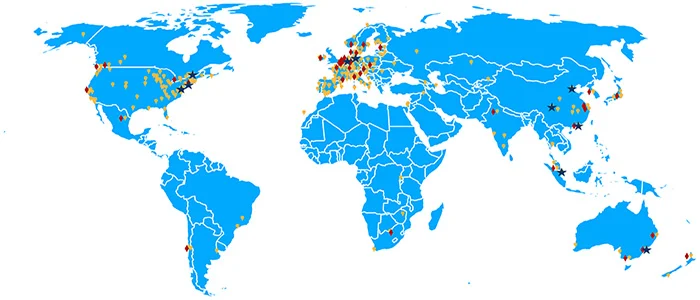 Europe is one of the best destinations for studies in the world today. One of the reasons for this is that it is host to some of the best universities in the world. According to The Times Higher Education World University Rankings 2020, European universities take over 40 percent of the places in the list of the best universities in the world.
Europe is one of the best destinations for studies in the world today. One of the reasons for this is that it is host to some of the best universities in the world. According to The Times Higher Education World University Rankings 2020, European universities take over 40 percent of the places in the list of the best universities in the world.
I am from Cameroon and I am currently pursuing a master’s in Public Administration at the University of Bergen, Norway. Growing up and going to school in Cameroon was an interesting but challenging experience as students are not in any way exposed to opportunities in other countries. Schools and universities provide students with literally no information when it comes to studying abroad. It takes personal effort to look for information about opportunities in places like Europe and elsewhere.
Here is a list of things you need to know when applying to study in Europe.
Types of University Degrees in Europe
There are a couple of different types of university degrees in Europe from undergraduate to graduate. At the undergraduate level, there is a B.A. Bachelor of Arts) which takes three to four years to complete. Bachelor of Fine Arts (B.F.A) also exists as a professional degree. There is a Bachelor of Science (B.Sc.) with a focus on combining theoretical knowledge with research practice and of Applied Science (BAS) degree with extensive practical experience. At the master’s degree level, the common types are taught and research master’s degrees. A taught Master’s (MSc, MA) is a master’s during which you take courses and your degree culminates with a dissertation. Your completion of the degree is based on your course grades and your thesis. A research master’s (MPhil) is similar but based entirely on your dissertation.
Studying in English in Europe.
Even though the majority of European countries are not English-speaking countries, there are a good number of degrees in English. Especially at the graduate level, coursework at European universities is frequently done in English, rather than the local languages. Fortunately and unfortunately, English is the main language for many international businesses and organizations. As a way to attract more international students, universities in Europe are offering more and more English courses.
Start Dates for Universities in Europe

For the most part, universities at both undergraduate and graduate levels start in September, though in some cases they start in October. The standard European bachelor’s degree is three years and master’s two years in length, but there are a few in the UK that are just one year, full time, and don’t allow for opportunities to work on the side. There is a new system in Norway, where bachelors and masters are combined and students are required to do five years of continuous academic studies to earn their degree certificate.
Some are two years part-time, but only for EU students. Case in point with University College Dublin.
In the UK, universities start September and October, Sweden August/September, Ireland in September, the Netherlands in September, Spain in September, Norway in August amongst others.







